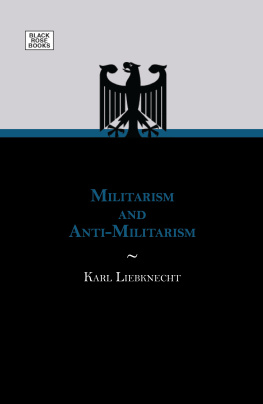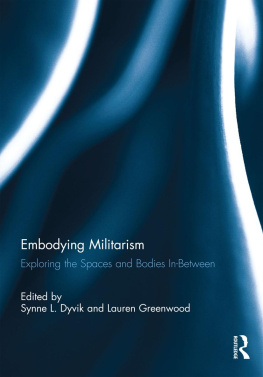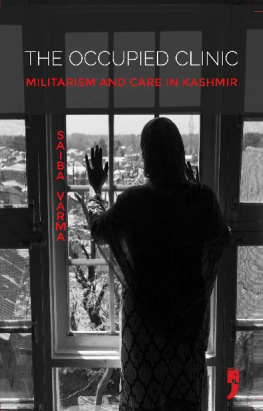CHAPTER VII.
THE ANTI-MILITARIST TASKS OF THE GERMAN SOCIAL DEMOCRACY.
ANTI-PATRIOTIC anti-militarism has found and will find no suitable soil in Germany. But the propaganda of German Social Democracy will have to be permeated to an ever-greater degree with the propagation of the international solidarity of Labour and with the propagation of the peace of nations as an aim of the proletarian struggle of liberation. The demands of the anti-militarist programme discussed above form a suitable basis to which no objection can be raised.
Generally speaking, militarism at home and all its perniciousness more felt in normal times with its many ramifications will have to contend with ever greater difficulties and thus the class-war character of militarism will become more prominent. Where the main attack is to be launched will be decided at the time by the national and international situation.
Whatever forms and whatever methods of propaganda we have to perfect or introduce in Germany and we have to assume as a matter of course that we shall have to keep within legal limits the question of doing propaganda inside the army has to be rejected in advance,
German Social Democracy has not even done enough in regard to collecting the material which indicts militarism. Only the military budget, the growth of the indirect military burdens, and the peace footing of the army, have been frequently set out in more detail. The connection between the military burdens and the protective and the taxation policies also awaits a closer examination, And what, above all, is lacking is an account of the mistreatment of soldiers, of the exploits of military justice, of suicides amongst soldiers, of conditions of hygiene in the army, injuries caused while on service, of conditions of pay and pensions as well as an account of the employment of soldiers in forcing down wages and of the decrees of the army corps relating thereto, an account of the employment of soldiers, and of soldiers about to be disbanded, as strike-breakers, further, of the intervention by the military and armed police in strikes, of the victims who have succumbed as a result of such action, an account of the system of military boycott, military intervention in cases of political action, an account of making use of the military societies in the socio-political and political struggle, further of the exploits of militarism in all these domains in other countries especially in the economic and the political struggle; in which case a special account is to be opened for militarism, navalism, and colonial militarism. We have insufficient knowledge of the material relating to the militarist Young People's societies of our opponents, and of the material which relates to the anti-militarist movement and to the manner in which it is opposed, nor has it been put into proper order.
The regular collection, sifting and collation of all this material must be systematically taken in hand; it is impossible to treat it as a side issue in connection with the general agitation.
Of course, this material would have to be used first in the general agitation, in parliament and in the press, in leaflets of a general kind and at meetings. But it must be directed to definite objectives and into definite channels in order to permeate and render fertile those strata of the population which are specially important for anti-militarism. First of all we have to consider the question not only of the youths liable to military service, but also the parents, especially the mothers, who should be specially mobilized for educating the young people in anti-militarism; also the question of the older workers whose influence upon the young workers and apprentices should be made use of as much as possible in this direction. And, finally, the struggle against the Military Societies should be carried on in a more vigorous and regular way.
The agitation will not be able to call anywhere directly or indirectly for military disobedience, but it will have attained its aim completely if it creates clearness about the essence of militarism and its rle in the class struggle, and if it rouses indignation and loathing against militarism by effectively bringing to the fore its qualities and deeds antagonistic to the people.
Where the laws permit it the Young Socialist organizations will have to be the chief bearers of this propaganda which, without doubt, undermines militarism or militarist sentiments by fostering class-consciousness. The Young Socialist societies will have to spread the anti-militarist spirit more and more in a form suited to the understanding of young people by means of pamphlets, leaflets, lectures, courses of lectures and by instruction. Festivities and artistic entertainments will have to be made use of for the same end. Again, the members of the societies will have to be educated as propagandists of anti-militarism. By agitation by word of mouth amongst their classmates of the same age, by spreading their literature the members of the Young Socialist organizations will turn their families, relations and friends, the workshop and the factory into a recruiting ground.
The Young Socialist organization itself must not limit its agitation to its members, but extend it as far as possible. It should appeal to the whole mass of the young workers. It must also attract the older workers in the manner described above. It must work systematically through the medium of the press, leaflets, pamphlets, general meetings, public lectures, artistic entertainments, festivities and so on, which are to be arranged both for the young people generally as well as for adults who are to be won over by the anti-militarist Young Socialist agitation. Giving send-offs to recruits and demonstrations of every kind (where permitted) must serve the same purpose.
In addition the Party must, as hitherto, in an ever-greater degree systematically take up the question of the soldiers and non-commissioned officers, must represent energetically their material and social1 interests in parliament, and thus try to win the sympathies of these circles in a way which cannot be legally taken exception to.
The foundation of special societies of ex-soldiers after the fashion of the Belgian and Dutch societies with the special task of opposing the Military Societies is not to be recommended for Germany: the general political and Trade Union organizations suffice here.
If we look around at what has taken place in other countries we see how much more remains for us to do; and if we scan the above programme we notice that the Party, much though it may have done in the domain of anti-militarism, has only just made a beginning in the fulfillment of its duty; to a certain extent it is in its infancy as regards anti-militarist propaganda.
That all these many-sided tasks cannot be tackled from a centre at present is obvious, as is also the fact that we must make it our future aim to direct and control them from a centre. The establishment of a central committee for this purpose appears as a matter of necessity because only in this way can we make sure that all lawful possibilities of agitation are made use of while observing due caution. Anti-militarist propaganda must be cast over the whole nation like a wide net. The proletarian youth must be systematically imbued with class-consciousness and with hatred of militarism. This kind of agitation would warm the hearts and rouse the youthful enthusiasm of the young proletarians. The proletarian youth belongs to Social Democracy, to Social-Democratic anti-militarism. It must and will be won over if everyone does his duty. He who has the youth has the army.
Notes
1 Improving the conditions of pay, of food, clothing, quarters, treatment, and rendering the service less arduous, fighting against mistreatment, reforming the law concerning discipline, punishment, lodging complaints, military justice, etc.






